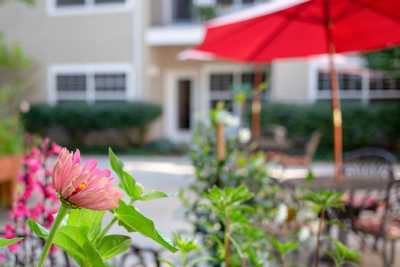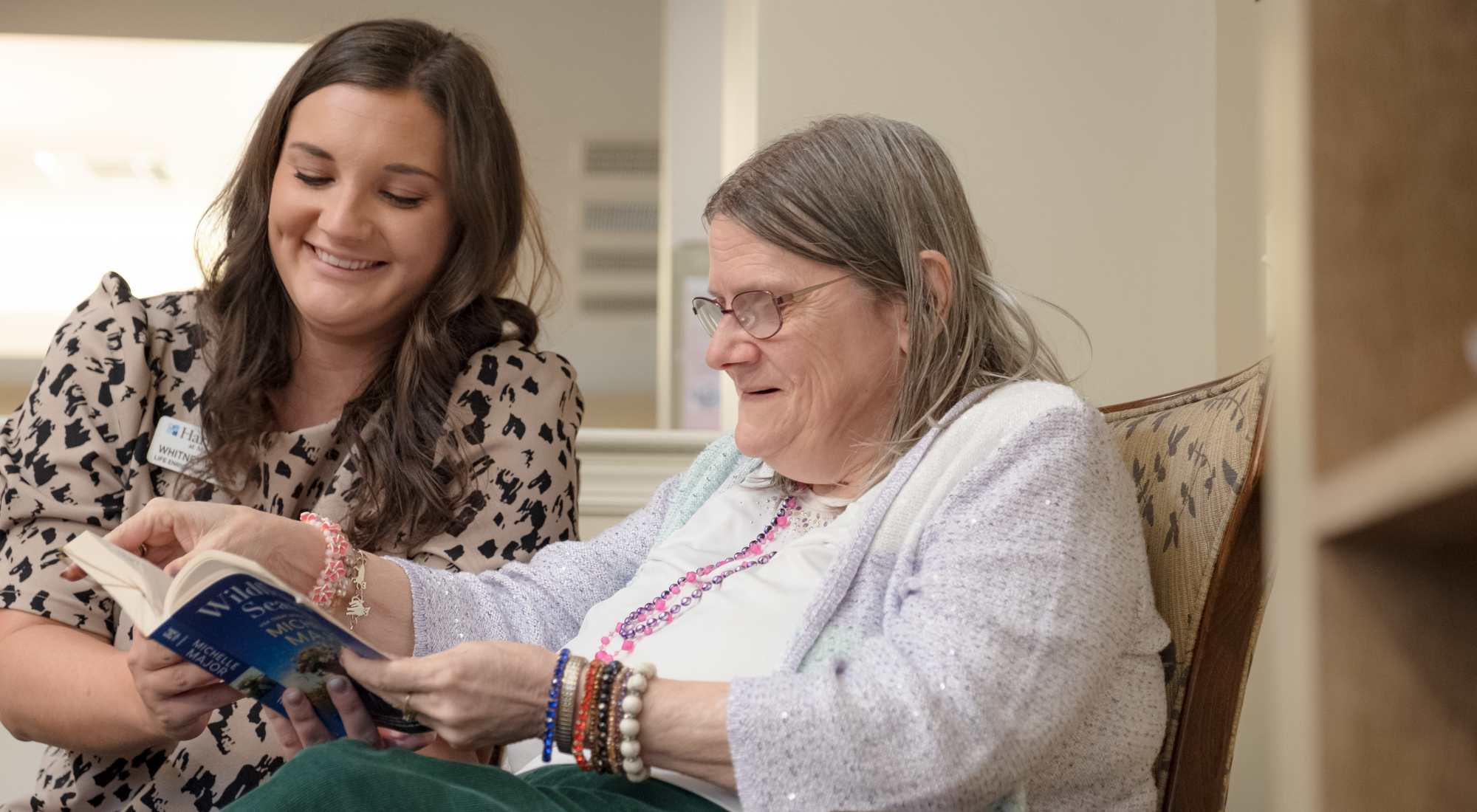Affordable and Intimate Living in Small Memory Carehomes Charlotte
Affordable and Intimate Living in Small Memory Carehomes Charlotte
Blog Article
All About Memory Care Providers: Why Tiny Memory Treatment Houses Are a Fantastic Choice
Memory care services play an important function in sustaining people with Alzheimer's and mental deterioration. Little memory treatment homes attract attention for their personalized method and intimate setting. With reduced staff-to-resident ratios, these homes cultivate stronger connections and customized care. Locals take advantage of improved social communications and a secure setting. As households discover options, recognizing the one-of-a-kind advantages of small memory care homes becomes important. What variables should be considered when choosing the appropriate home?
Recognizing Memory Treatment Solutions
While several might know with general senior care choices, understanding memory care services is crucial for households facing the obstacles of cognitive decrease. Memory treatment particularly satisfies individuals with problems such as Alzheimer's condition and other forms of dementia. These services supply a structured setting that concentrates on enhancing the top quality of life for residents via specialized care and support.Memory treatment facilities are designed to guarantee safety and security and safety, typically featuring safeguarded settings to avoid wandering. Educated personnel are offered around the clock to aid with daily activities, drug management, and individual care. In addition, memory treatment programs often include cognitive stimulation activities, customized to involve homeowners and promote mental wellness. Family members can gain from understanding these services, as they make it possible for informed choices regarding their enjoyed ones' care, guaranteeing that their certain demands and choices are resolved in a encouraging and caring manner.
The Advantages of Small Memory Care Houses
Small memory treatment homes supply unique advantages that can greatly enhance the high quality of life for residents with cognitive problems. One significant advantage is the intimate setting, which allows for tailored communications among staff and residents. This smaller setting fosters meaningful relationships, lowering feelings of isolation and anxiousness usually experienced by people with memory issues.Additionally, the lower staff-to-resident ratio in tiny memory care homes allows caretakers to provide even more attentive supervision and assistance. This method not only improves security yet also promotes a feeling of protection for the residents.Moreover, small memory care homes can adjust swiftly to the unique requirements and choices of each resident, enabling for a much more homey environment. Such an atmosphere can encourage social interaction and engagement in activities, inevitably enriching the day-to-day experiences of those coping with cognitive disabilities.
Personalized Care Program for Residents
Personalized care plans are vital in memory care homes, as they accommodate the unique needs and preferences of each citizen. These plans start with thorough analyses conducted by knowledgeable specialists, who evaluate cognitive capacities, clinical history, and individual interests. This customized method warranties that care is not only effective however also respectful of each individual's self-respect and autonomy.Moreover, personalized care plans are adaptable, allowing adjustments as residents' needs develop over time. This versatility fosters a complacency and knowledge, which is necessary for people living with memory challenges. Caregivers are educated to implement these plans constantly, providing assistance that lines up with the citizens' routines and preferences.Ultimately, customized care strategies enhance the lifestyle for residents by promoting well-being, freedom, and engagement, making them an essential element of memory treatment services in little memory care homes.
Producing a Home-Like Environment
Developing a home-like environment is essential for promoting comfort and knowledge in memory care setups, as it significantly impacts homeowners' emotional wellness. Tiny memory care homes often prioritize personalized touches, such as cozy color schemes, family pictures, and familiar furnishings plans, which help residents really feel much more secure. Integrating elements evocative a standard home, like comfortable home and public areas, urges a sense of belonging.Moreover, utilizing all-natural light and exterior areas can boost the ambience, advertising leisure and harmony. Personnel play a substantial duty in preserving this atmosphere by involving with residents in a caring fashion, treating them like household. Regular activities, such as food preparation or gardening, can additionally contribute to a home-like feel, using chances for homeowners to join purposeful experiences. In general, producing a supporting setting supports cognitive feature and psychological security, making it a necessary aspect of memory treatment solutions.
Enhanced Social Interaction and Neighborhood
Enhanced social interaction and area are essential components of memory care solutions. By fostering customized social interaction and creating a family-like atmosphere, these services promote significant connections among citizens. Group activities and occasions additionally motivate involvement, helping individuals really feel extra included and sustained.
Personalized Social Engagement
While social interaction is essential for overall wellness, lots of individuals with memory problems commonly have a hard time to involve meaningfully with others. Individualized social involvement in memory care homes addresses this difficulty by producing customized activities that cater to citizens' distinct passions and abilities. By concentrating on individual choices, caregivers can promote connections that reverberate deeply with everyone. Tasks such as art therapy, music sessions, and guided conversations promote cognitive excitement and psychological expression. Additionally, tiny group setups encourage camaraderie and permit for even more intimate interactions, boosting sensations of belonging. This technique not only battles feelings of isolation however also empowers citizens to preserve a sense of identification, ultimately adding to boosted psychological health and wellness and high quality of life.
Family-like Atmosphere
In a memory care setup, fostering a family-like atmosphere greatly enhances social communication and builds a feeling of community among citizens. Smaller memory treatment homes commonly focus on intimate atmospheres, permitting citizens to develop closer links with each other and personnel. This nurturing environment promotes count on, which is crucial for individuals with memory problems. Homeowners are a lot more likely to involve in conversations and share experiences, producing an encouraging network that reduces sensations of loneliness. The knowledge of common areas and regimens adds to a feeling of belonging, further urging social communication (personalized memory care). In such setups, emotional bonds prosper, resulting in boosted general health and a better of life for homeowners as they navigate their everyday experiences with each other
Group Activities and Events

Safety And Security and Security Features in Small Houses
Several tiny homes made for memory care incorporate essential safety and security and protection attributes to assure the well-being of locals. These homes often make use of safe entry and leave factors to stop straying, a typical issue amongst people with memory impairments. Additionally, surveillance systems and alarm devices enhance tracking, guaranteeing that staff can immediately respond to any kind of unusual activities.Interior formats are tailored for safety and security, with lessened hazards such as sharp edges and clutter-free pathways. Handrails and non-slip flooring are typically set up to decrease the danger of falls. Team member are learnt emergency situation procedures, guaranteeing they are planned for various situations.Moreover, personalized care plans may consist of assessment of specific safety and security demands, supplying tailored remedies for each and every citizen. On the whole, these security and protection functions develop a nurturing setting where residents can flourish while preserving their self-respect and self-reliance.
Just how to Pick the Right Memory Care Home
How can households assure they select the most appropriate memory treatment home for their liked ones? The decision needs mindful factor to consider of numerous factors. Family members should examine the facility's personnel credentials and training, guaranteeing that caretakers are experienced in handling memory-related conditions. Next off, it's crucial to examine the home's atmosphere, concentrating on safety discover this info here attributes and whether it fosters a feeling of community and belonging. Seeing the facility can provide insight into daily activities and the social ambience, which are crucial for mental stimulation and psychological health. In addition, families need to inquire about the treatment strategies supplied, ensuring they are tailored to specific needs. Considering the home's location and access for household check outs can contribute to a smoother shift. By dealing with these aspects, family members can make an educated choice that prioritizes their liked one's convenience and lifestyle in a memory care setup.
Often Asked Inquiries
What Qualifications Should Personnel Members in Memory Treatment Houses Have?
Team member in memory care homes should have relevant qualifications, experience in mental deterioration treatment, strong interaction abilities, and compassion. Ongoing training in behavioral management and healing treatments enhances their capability to sustain citizens successfully.
How Do Memory Treatment Provider Differ From Typical Assisted Living?
Memory treatment solutions focus particularly on people with memory problems, supplying specialized support and structured atmospheres. In comparison, traditional assisted living provides general support with daily activities, lacking the customized strategy necessary for those with cognitive obstacles.
What Kinds of Tasks Are Used in Memory Care Residences?
Memory treatment homes typically use a range of tasks developed to engage homeowners. Common alternatives include art treatment, music sessions, cognitive video games, physical workouts, horticulture, and social events, all intended at boosting health and cognitive function.
Can Citizens Bring Their Own Possessions to Memory Care Houses?
Locals can commonly bring their very own possessions to memory treatment homes, enabling them to customize their home - personalized memory care. This method assists create a familiar environment, advertising convenience and a feeling of identity for the individuals

How Are Relative Involved in the Care Refine?
Household members play a crucial role in the treatment procedure, commonly joining decision-making, participating in care conferences, and giving psychological assistance. Their participation promotes a collective atmosphere, enhancing the resident's overall well-being and lifestyle. While many might be acquainted with basic elderly treatment choices, comprehending memory care solutions is important for family members facing the difficulties of cognitive decrease. These services give an organized environment that focuses on improving the high quality of additional resources life for residents through specialized treatment and support.Memory treatment facilities are designed to assure safety and security, typically including secured environments to avoid roaming. Individualized care plans are essential in memory treatment homes, as they provide to the distinct needs and preferences of each resident. Team members in memory care homes need to have pertinent qualifications, experience in dementia treatment, solid communication skills, and empathy. Memory treatment services focus specifically on people with memory problems, offering specialized assistance and structured atmospheres.
Report this page